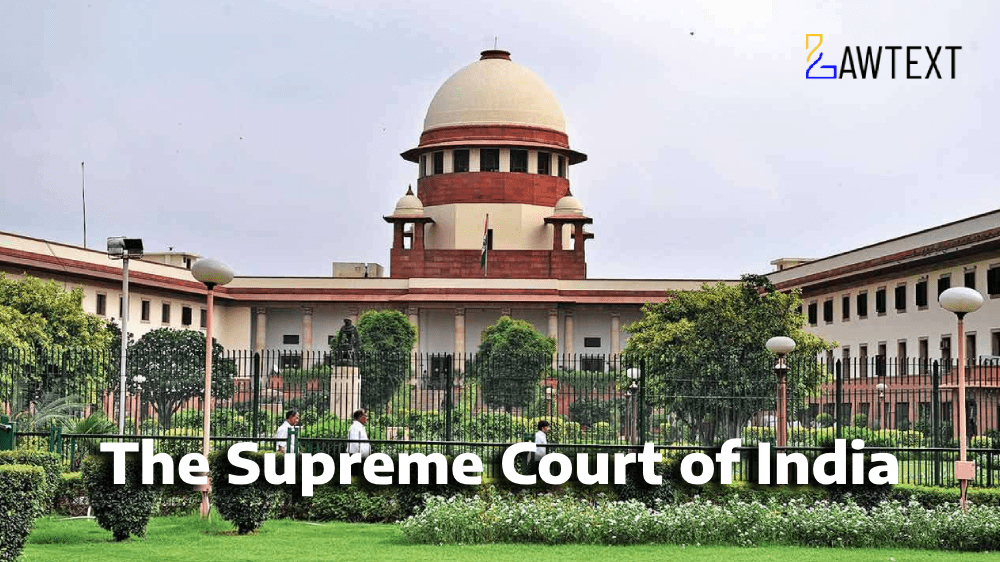"Supreme Court Calls for Larger Bench to Resolve Conflicting Judgments on Hindu Female Property Rights" "Section 14 of the Hindu Succession Act faces judicial scrutiny amidst divergent interpretations of women’s property rights."

CASE NOTE & SUMMARY
The judgment highlights the interplay between Sections 14(1) and 14(2) of the Hindu Succession Act, 1956, focusing on the property rights of a Hindu female, particularly regarding whether her limited estate in property, acquired under a will, could be enlarged into absolute ownership. The Court reviewed conflicting precedents and referred the matter to a larger bench to resolve inconsistencies in judicial interpretation.
-
Facts:
- Kanwar Bhan executed a will (1965), granting his wife, Lachhmi Bai, a life estate over certain properties, explicitly restricting her rights to alienate them.
- After his death (1965), Lachhmi Bai sold the property to the appellant in 1981.
- The respondents (Kanwar Bhan's son and grandsons) filed a suit challenging the sale, asserting that Lachhmi Bai’s limited rights under the will could not be converted into absolute ownership under Section 14(1) of the Act.
-
Issue:
- Whether the life estate granted to a Hindu female under a will can be enlarged into absolute ownership under Section 14(1) of the Hindu Succession Act, 1956.
-
Held:
- The Court noted inconsistencies in precedent regarding the application of Sections 14(1) and 14(2). It referred the matter to a larger bench for resolution, emphasizing the need for clarity and uniformity in law.
1. Introduction: Confusion under Section 14 of the Act
- Para 1-4: The Court discusses interpretative challenges of Section 14 and divergent judgments, creating legal uncertainty.
2. Case Background
- Para 5-7: The testator granted limited rights to his wife, who later sold the property. Respondents contested the sale, citing the restrictions in the will.
3. Trial Court and First Appellate Court
- Para 8: Both courts ruled in favor of the appellant, applying the principles from V. Tulasamma v. Sesha Reddy (1977).
4. High Court Decision
- Para 9: The High Court reversed the lower courts, relying on Sadhu Singh v. Gurdwara Sahib Narike (2006), which leaned towards restricting rights under Section 14(2).
5. Review of Precedents
- Para 10-24: Detailed analysis of conflicting judgments, including:
- Tulasamma (1977): Advocated for enlargement of rights under Section 14(1).
- Karmi v. Amru (1972): Opposed such enlargement if the property was acquired under a will with restrictions.
- Other cases like Gumpha v. Jaibai (1994), Sadhu Singh (2006), and Thota Sesharathamma (1991).
6. Referral to Larger Bench
- Para 24-25: Observing significant inconsistencies, the Court directs the case for consideration by a larger bench.
Acts and Sections Discussed:
-
Hindu Succession Act, 1956:
- Section 14(1): Enlarges a Hindu female’s property rights to absolute ownership for properties possessed before or after the Act’s commencement.
- Section 14(2): Restricts enlargement for properties acquired under instruments prescribing limited estates.
-
Hindu Adoptions and Maintenance Act, 1956:
- Section 18: Rights of a wife for maintenance.
- Section 21: Defines a widow as a dependent.
- Section 22: Obligation of heirs to maintain dependents.
Ratio Decidendi:
- Section 14(1) applies only if a Hindu female has a pre-existing right to the property, even if such a right is limited.
- Section 14(2) applies to newly acquired rights under instruments, wills, or decrees that explicitly limit ownership.
- A restricted estate granted under a will cannot generally be enlarged under Section 14(1), as clarified by Karmi v. Amru and subsequent cases.
Subjects:
Hindu Succession, Women’s Property Rights, Judicial Interpretation
#HinduLaw #Succession #PropertyRights #Section14 #WomenEmpowerment
ISSUE OF CONSIDERATION
TEJ BHAN (D) THROUGH LR. & ORS. VERSUS RAM KISHAN (D) THROUGH LRS. & ORS.
Citation: 2024 LawText (SC) (12) 90
Case Number: CIVIL APPEAL NO. 6557 OF 2022
Date of Decision: 2024-12-09
Case Title: TEJ BHAN (D) THROUGH LR. & ORS. VERSUS RAM KISHAN (D) THROUGH LRS. & ORS.
Before Judge: [PAMIDIGHANTAM SRI NARASIMHA J. , SANDEEP MEHTA J.]
Appellant: TEJ BHAN (D) THROUGH LR. & ORS.
Respondent: RAM KISHAN (D) THROUGH LRS. & ORS.

